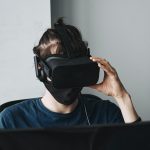
Depression isn’t only a genetic condition. It can evolve in certain personality types. Beyond Blue, noted that depression can be linked to individual traits of low-self esteem, perfectionism, excessive worry, a pessimistic outlook, being highly self-critical and unable to take on criticism. For some, it may be the pressure to be successful; to achieve the best career. The best financial security. The best reputation. When all of this feels as if it is crumbling to pieces, it can lead to a downward spiral of depression.
That said, do you have the knowledge to know what to do if a close classmate or colleague told you he has depression?
What is depression in the first place? How do people cope with it?
Depression is a topic which most people avoid talking about preferring to sweep it under the carpet, in case the wrong thing is said. For those that do have depression, it can seem as if there is never a right time to speak up about it. As reported in Issue 3: Technology in Psychiatric-Mental Health Clinical Practice, Research, and Education,
Depression remains a highly stigmatized condition that creates a barrier for people to openly discuss their experiences.
In Australia, statistics show, 54% of people with mental illness do not access any treatment. Ergo, your best friend and colleague might be suffering from depression and you wouldn’t even know.
Although there are several different cases of depression, one thing therapists teach is the importance for people suffering with depression to maintain and seek out social connections. Hence why we can all benefit in educating ourselves on what depression is and what it is like to live with.
As a society we need to be less afraid to address it, to reach out and make an effort to help our friends and family, as learning about depression and how to be an affable and patient friend to someone who has this mental illness, will make a difference. But, just how do we go about educating ourselves the best way?
VR can be used to help society maintain mental health practices that provide relief and support to people who have depression, which would help to erase the stigma that currently keeps us from being able to talk about depression in the first place. VR can be integrated into educational institutions such as schools and universities, to help young people receive education early on and be exposed to mental health training so that they are able to detect mental illness in themselves or others.
VR can help us not only identify people close to us who are suffering from depression but also show those that know someone with depression, how to help, interact and support them. Its highly immersive nature has proven to help learners to digest content at a faster rate, at a fraction of the time.
Currently, there are few training modules on the market to help people who have depression. Limbix VR created a 101 Depression and also a Teenage Depression module designed for people who suffer with depression to revise the impact of the condition on one’s thoughts, feelings and behaviors. Patients are given the opportunity to watch the VR simulations prior to therapy sessions and at the completion of therapy, as a way to facilitate their repertoire of coping strategies. Needless to say, these services should be compulsory in educational institutions, such as universities, because of its ability to educate far more people.
Moreover, self-compassion is another avenue being tested on individuals with depression, using VR, and results indicate VR self-compassion training helped individuals in the recovery or ‘maintenance’ stage of their depression. In other words, VR self compassion techniques were tested to be a successful way of reducing patients symptoms. That said, imagine integrating VR with training modules specially designed to put individuals “in the shoes” of someone who has depression; giving them a multi-sensory platform to provide tips on how to communicate and approach people with the condition. This way, society would become far more aware and capable of dealing and managing relationships in their lifespan, whether that be in the workplace or at school or at home.
Managing and building social connections with people who have depression will be more important into the future where cases are already predicted to rise. A report by Black Dog Institute states,
The World Health Organisation estimates that depression will be the number one health concern in both the developed and developing nations by 2030.
Inevitably a portion of cases will be more difficult to detect in some individuals. Thus, even if we don’t want to talk about it, we need to ensure those that are suffering from depression are heard and understood. Learning about how to help someone with depression is like learning CPR, you never know when you might need it or whose life it can save.
Written by Lauren Tizzone
Similar articles to check out:







